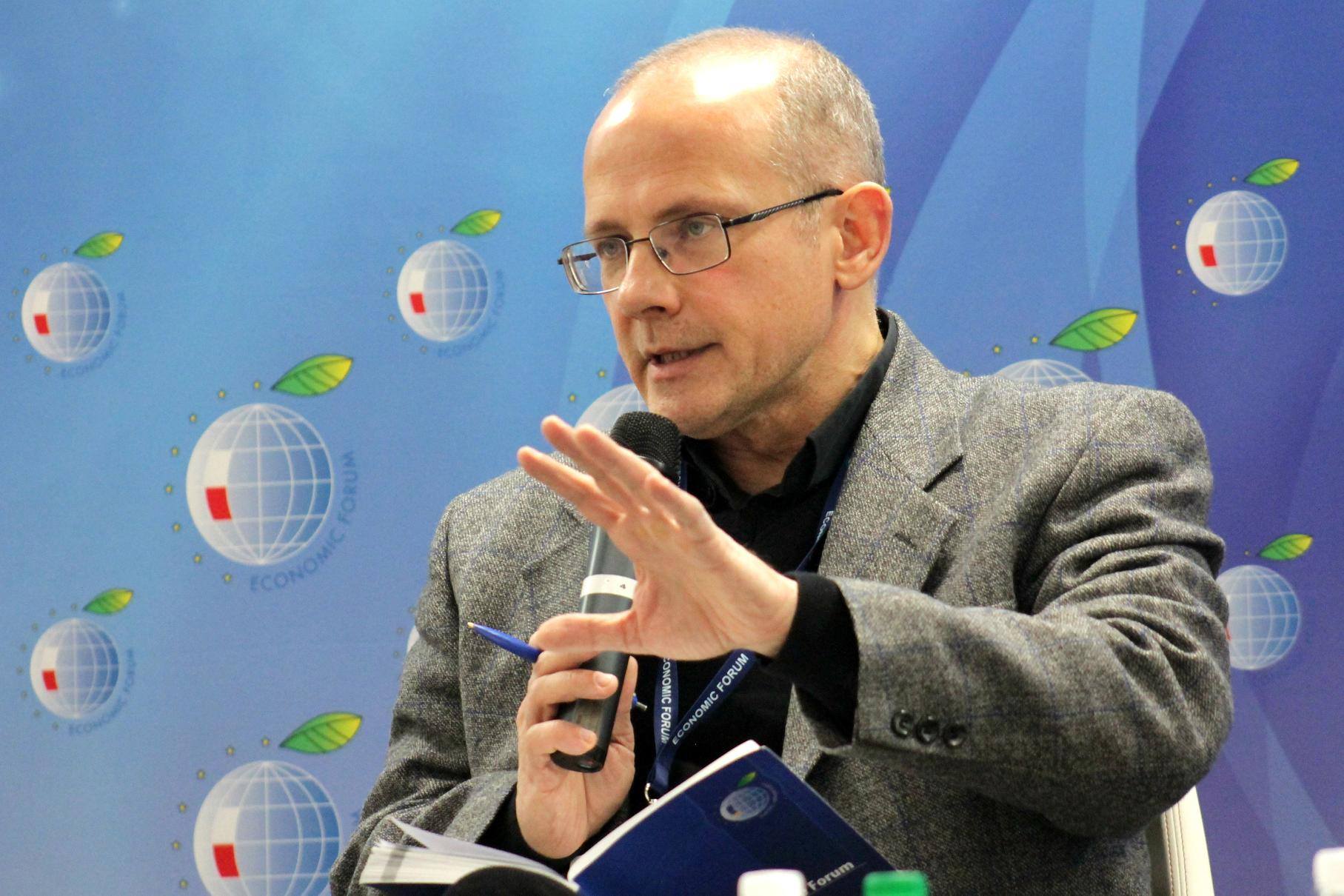Alexander Dugin – A Russian scarecrow
An interview with Andreas Umland, Institute for Euro-Atlantic Cooperation in Kyiv. Interview originally conducted by Rzeczpospolita (Poland).
March 20, 2017 -
Andreas Umland
-
Interviews

RZECZPOSPOLITA: Can we call Alexander Dugin a fascist?
ANDREAS UMLAND: Dugin has explicitly and implicitly expressed numerous times his deep appreciation for fascism – including institutions and representatives of the SS (Schutzstaffel), such as the occultist Forschungsgemeinschaft Deutsches Ahnenerbe (Research Society for the German Heritage of Ancestors) co-founded by Herman Wirth (1885-1981), or the SS-Obergruppenführer Reinhard Heydrich (1904-1942) whom Dugin once called a “convinced Eurasianist”, thereby making Heydrich a precursor of his own International Eurasian Movement (Международное «Евразийское Движение»). Dugin has enthusiastically predicted the rise of a Russian true “fascist fascism” in his article “Fascism – borderless and red”. In some regards, he is – in doing so – similar to the Italian SS-admirer Julius Evola (1898-1974) whom Dugin read and who, like Dugin, criticised historic fascism for being insufficiently radical and not fascist enough. While the “neo-Eurasianist” is obfuscating his ideology as “conservatism” or a non-fascist “fourth political theory,” Dugin’s entire ideology is expressly fascist in that it aims for a radically new-born, ultra-nationalistic (though not ethnocentric) Russia and, indeed, world.
How big of an impact does Dugin’s ideology have on Vladimir Putin and Russian politicians? Does the Kremlin believe in Eurasianism and the fourth political theory – or do they just skilfully use fragments of this ideology?
Dugin has no direct influence on Putin and other leading politicians, with the partial exceptions of Vladimir Yakunin and Sergei Glazyev, which could be considered a part of Putin’s inner circle. However, Dugin exerts a significant amount of indirect influence on Russian politics via his enormous activism in book publishing, networking, media appearances and international affairs. He is one of Russia’s major right-wing extremist theoreticians and widely read in the ultra-nationalist milieu in- and outside Russia. The Kremlin exploits figures like Dugin, Vladimir Zhirinovsky and others to present itself as a more moderate political force within Russia and in its foreign policies. Dugin and others like him play for the regime important roles of scarecrows, detractors, middlemen, communicators, drummers etc., yet they are not the regime’s ideologists.
Is Dugin listened only in Russia, or does he also have supporters in Europe and elsewhere?
He has a certain influence on the western lunatic fringe, yet for many European right-wing populists, Dugin is too extreme. He is considered, however, within the western anti-liberal intellectual circles as a theoretician. Apparently Steve Bannon, who is a key Donald Trump advisor, is aware of Dugin’s ideas. Dugin may be exerting his strongest political effect currently within Russian-Turkish relations, after he seems to have recently played some role in the restoration of close ties between Moscow and Ankara. This episode though remains understudied, and needs to be researched in more detail.
Is the United States still the main opponent for Dugin or after choosing Trump, the perception has changed?
Dugin was an enthusiastic supporter of Trump during the campaign and has since Trump’s victory modified his hitherto unqualified anti-Americanism significantly. One suspects, however, that Dugin’s embrace of Donald Trump happened not so much because Dugin likes Trump, but rather because he sees Trump as an anti-liberal virus who divides and potentially even destroys the West as a unified international actor.
What is the source of Dugin’s inspiration for his writing of The Foundations of Geopolitics? Is it only 20th century Eurasianists?
When Dugin wrote his most important book by the mid-1990s, he was familiar with Russia’s classical Eurasianists. At that time, however, he was mainly inspired by various non-Russian, anti-liberal schools including Western Integral Traditionalism, the Weimar Republic’s Conservative Revolution, Italian Fascism, Anglo-Saxon geopolitics, German Nazism, British Satanism, continental National Bolshevism and the post-1968 European New Right. Russian ideas from Slavophilism, classical Eurasianism, Orthodox millennialism, as well as from Lev Gumilev’s neo-racist theories have served Dugin mainly to “Russify” already previously held beliefs. These were and are radically anti-Western, yet paradoxically mainly shaped by authors from Western European countries, above all from Italy, Germany, and France.
Is the fourth political theory based on new thinking or is it just a combination of communism, fascism and liberalism which Dugin has connected?
The term “fourth political theory” mainly serves the purpose to disassociate Duginism from German Nazism and Italian Fascism. It is a softer version of his earlier writings from the 1990s, and reformulates his ideas in a less obviously neo-fascist form.
This interview was originally conducted for the Polish daily Rzeczpospolita.
Andreas Umland is a senior research fellow at the Institute for Euro-Atlantic Cooperation in Kyiv, general editor of the book series Soviet and Post-Soviet Politics and Society and consulting editor for the Journal of Soviet and Post-Soviet Politics and Society, both distributed outside Europe by Columbia University Press.

































